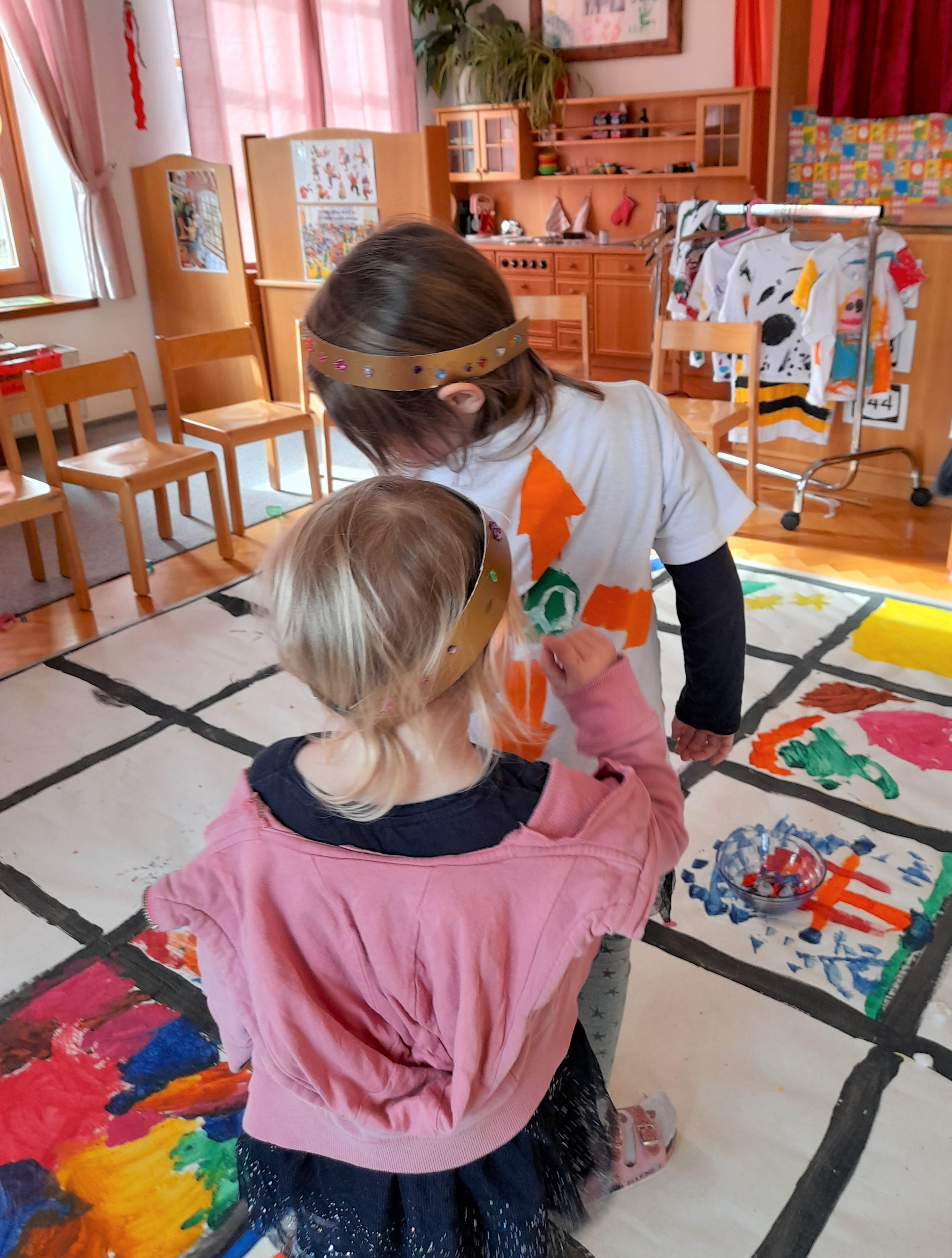
Topic(s) addressed
The project covered the following topics: digital competences with activities like Digi-Train, Bee-Bots and self-made “Human Bee-Bots”; Europe Week with virtual journey through selected European countries and presentations from parents from different countries that included a French lesson and learning a Hungarian Christmas song.
Target group(s)
We specifically targeted children between three and six years old. The project addressed also the kindergarten teaching staff and the parents.
Methodologies
The educators have learned a lot about the use of digital media in preschool. An inclusive approach allowed all children to benefit from these materials and methods. Thus, the children could gain a better understanding of the community. With Bee-Bots and "Human – Bee-Bots", girls and boys learnt programming in a playful way and took an interest in maths and logic. This approach will continue further on in primary and secondary school with Blue-Bots, Lego-WeDo and Robotics.
Innovation environment
The kindergarten in Grosssteinbach offered different rooms for presenting digital activities.
The kindergarten children developed their skills guided in small groups by pedagogues or through peer learning. The pedagogues keenly embraced the new ideas of digital access and European topics.
The materials for the project were made so they can be reused in the future.
Teachers’ role
The kindergarten teachers were trained through relevant training to better introduce children to the use of digital learning tools and present programming in a playful way. They happily shared the content with each other. Erasmus+ mobilities were used to introduce the teaching staff to the use of digital tools like tablets that can prove very productive in the years to come.
Impact and output
Through this project, children enhance their logical, mathematical, and digital skills, while parents recognize the meaningful use of digital media. The Digi-train's virtual European journey fosters a sense of community among diverse cultures. Younger children benefit from older ones, and even interns appreciate this symbiotic approach. Consequently, primary school students develop foundational programming and logical thinking skills early on. The excitement is palpable all around!
Video
- Reference
- 2020-1-AT01-KA101-077773
- Project locations
- Austria
- Project category
- Early childhood education and care
- Project year
- 2023
Stakeholders
Coordinators
Gemeinde Grosssteinbach
- Address
- Austria
Participants
St.Marien Schule, Moers
- Address
- Germany
Smultronställets förskola, Gaevle
- Address
- Sweden
